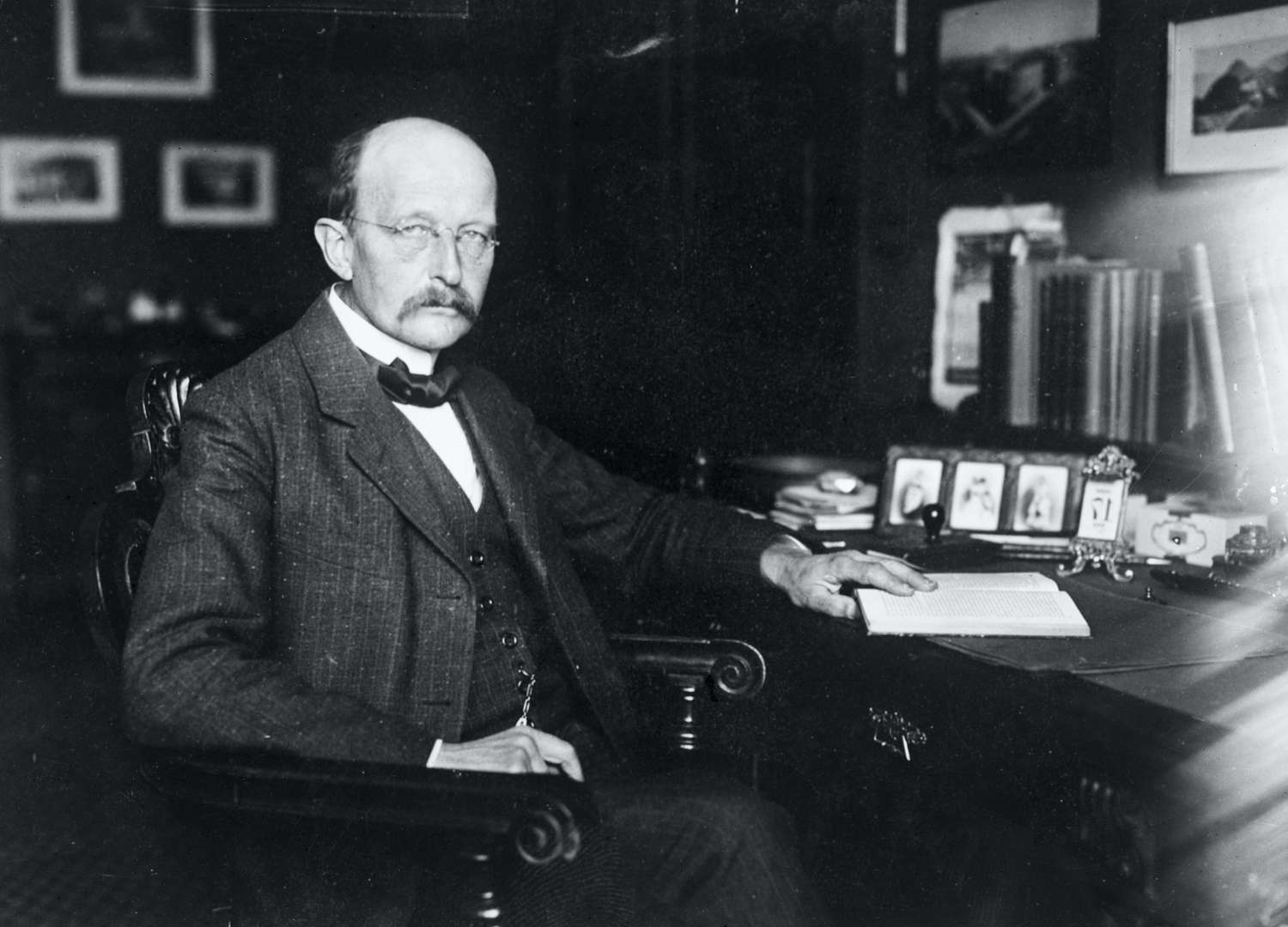
Max Planck, a name synonymous with scientific brilliance, is widely regarded as one of the greatest physicists of all time. Born on April 23, 1858, in Kiel, Germany, Planck made groundbreaking contributions to the field of quantum physics, revolutionizing our understanding of the fundamental laws of nature. His work laid the foundation for modern physics and earned him numerous accolades, including the Nobel Prize in Physics in 1918. But there is more to this remarkable scientist than meets the eye. In this article, we will explore nine unbelievable facts about Max Planck that shed light on his life, accomplishments, and enduring legacy. From his early struggles to his profound impact on the scientific community, Planck’s journey is nothing short of extraordinary. So buckle up and prepare to be amazed by the astonishing life of Max Planck!
Key Takeaways:
- Max Planck’s quantum theory revolutionized our understanding of atoms and energy, shaping modern physics and leading to the development of quantum mechanics.
- Max Planck’s unwavering commitment to scientific excellence and human rights left a lasting legacy, inspiring future generations of physicists and shaping the field of physics.
Planck’s revolutionary discovery shook the foundations of physics.
Max Planck is best known for formulating the quantum theory, a groundbreaking concept that revolutionized our understanding of the behavior of atoms and subatomic particles. His realization that energy is quantized and radiated in discrete packets, known as “quanta,” laid the groundwork for modern physics.
The Birth of Quantum Mechanics:
Planck’s work laid the foundation for the development of quantum mechanics.
Max Planck’s quantum theory served as a precursor to the establishment of quantum mechanics, a branch of physics that deals with the behavior of matter and energy on a microscopic scale. His contributions set the stage for subsequent breakthroughs by renowned scientists such as Albert Einstein and Niels Bohr.
Nobel Prize Laureate:
Planck was honored with the prestigious Nobel Prize in Physics.
In recognition of his groundbreaking work on quantum theory, Max Planck was awarded the Nobel Prize in Physics in This esteemed accolade solidified his status as one of the most influential scientists of his time.
Planck Constant:
The Planck constant is named after Max Planck.
In honor of his immense contributions to the field of physics, the fundamental constant h, known as the Planck constant, was named after Max Planck. This constant plays a crucial role in quantum mechanics and is used in various calculations and equations within the field.
The Unification of Physics:
Planck dedicated his career to the unification of physics.
Max Planck’s pursuit of understanding the fundamental laws of nature extended beyond just quantum theory. He dedicated his career to bridging the gap between classical physics and quantum mechanics, with the goal of achieving a unified theory that encompasses all aspects of the physical world.
Planck’s Law of Black Body Radiation:
Planck’s law explained the distribution of energy emitted by a black body.
Max Planck formulated the law of black body radiation, which accurately described the spectrum of energy emitted by an idealized object that absorbs and emits all radiation. This law laid the foundation for advancements in various fields, including astrophysics and thermodynamics.
Academic Legacy:
Planck’s teachings influenced generations of physicists.
As a professor at the University of Berlin, Max Planck mentored and educated numerous students who would go on to become prominent physicists themselves. His teachings and guidance left an indelible mark on future generations of scientists.
Planck’s Anti-Nazi Stance:
Planck took a firm stand against Nazi ideology.
During the rise of the Nazi regime in Germany, Max Planck openly opposed their policies and condemned their interference in scientific research and academic freedom. His unwavering commitment to upholding principles of intellectual independence and human rights earned him respect worldwide.
Planck’s Lasting Legacy:
Planck’s contributions continue to shape the field of physics.
The impact of Max Planck’s work reverberates through the scientific community to this day. His discoveries and theories continue to guide research in various fields, making him an enduring figure in the history of physics.
Conclusion
In conclusion, Max Planck was an extraordinary individual whose contributions to the fields of physics and quantum theory were truly unparalleled. His groundbreaking work on the concept of energy quantization and the development of the quantum theory revolutionized our understanding of the universe.Through his dedication and perseverance, Planck reshaped the landscape of physics and earned numerous accolades, including the Nobel Prize in Physics in 1918. His famous equation, E=hf, is still widely used today and forms the basis of modern quantum mechanics.Planck’s unwavering pursuit of scientific truth serves as an inspiration to future generations of scientists. His remarkable discoveries continue to shape our understanding of fundamental principles governing the universe. Max Planck’s legacy remains an integral part of the scientific community, reminding us all of the limitless potential of human intelligence and the power of curiosity.
FAQs
1. Who was Max Planck?
Planck was a German physicist who is best known for his pioneering work in quantum physics and for developing the concept of energy quantization.
2. What is Planck’s constant?
Planck’s constant, denoted by the symbol h, is a fundamental constant in physics that relates the energy of a photon to its frequency. It has a value of approximately 6.626 x 10^-34 joule-seconds.
3. What is Max Planck’s most significant contribution to science?
Planck’s most significant contribution was the formulation of the quantum theory, which revolutionized our understanding of the behavior of matter and energy at the atomic and subatomic levels.
4. What is the significance of Planck’s equation, E=hf?
Planck’s equation, E=hf, relates the energy of a photon (E) to its frequency (f). This equation laid the foundation for the development of quantum mechanics and is still widely used in various branches of physics.
5. Did Max Planck receive any awards for his work?
Yes, Max Planck received numerous awards and honors for his groundbreaking contributions. He was awarded the Nobel Prize in Physics in 1918 for his discovery of the energy quanta.
6. How did Planck’s work impact the field of physics?
Planck’s work fundamentally changed our understanding of the nature of matter and energy. His discoveries paved the way for the development of quantum mechanics, which has had a profound impact on various branches of physics, including particle physics and solid-state physics.
7. Is Planck’s work still relevant today?
Absolutely. Planck’s work forms the foundation of modern quantum theory and is still extensively used and expanded upon in current scientific research and technological advancements. His concepts and equations continue to shape our understanding of the fundamental laws governing the universe.
Max Planck's groundbreaking discoveries forever changed our understanding of physics. Curious minds yearning to explore further can delve into the intricacies of Planck's law of blackbody radiation, which revolutionized our comprehension of energy distribution. Those captivated by the fundamental constants that govern our universe should investigate the fascinating world of Planck's constant, a cornerstone of quantum mechanics.
Was this page helpful?
Our commitment to delivering trustworthy and engaging content is at the heart of what we do. Each fact on our site is contributed by real users like you, bringing a wealth of diverse insights and information. To ensure the highest standards of accuracy and reliability, our dedicated editors meticulously review each submission. This process guarantees that the facts we share are not only fascinating but also credible. Trust in our commitment to quality and authenticity as you explore and learn with us.


